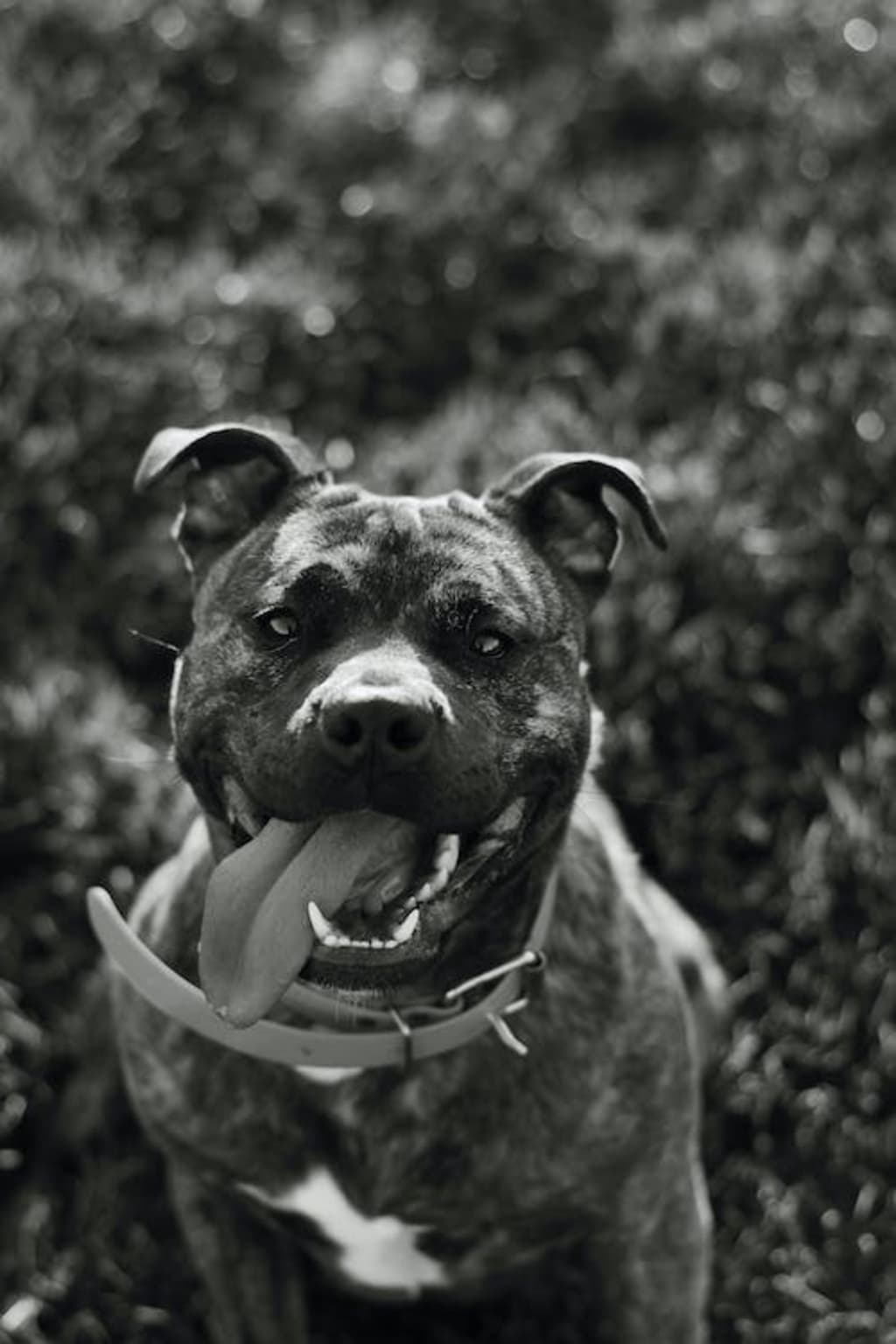The Most Dangerous Dog Breeds That Shouldn’t Be Kept As Pets.
Understanding Dog Breeds That Require Special Care.

Although many people believe that dogs are man’s best friend, not all dog breeds make suitable companions. Some people are potentially lethal, dangerous, and violent. These breeds have a history of attacking people and other animals, which can result in life-threatening injuries or even death.
The ferocious Pit Bull and the enormous Rottweiler are among the top 10 most deadly dog breeds. Because of their tendency to harm, certain breeds are frequently prohibited or subject to regulation in some areas. It’s crucial to keep in mind that each dog is different and that their temperaments and behaviors can vary, even if they have a reputation for being deadly.
To protect their safety and the safety of others, owners of certain breeds must take special care. Owners must socialize their pets from a young age and provide them the right care and training. It’s crucial to keep them on a leash and avoid leaving them unattended around kids or other animals.
In spite of their tendency for aggression, these breeds can make wonderful pets in the proper hands. However, prospective owners should carefully investigate the breed before deciding to purchase one, and they should be ready to make the extra effort necessary to ensure that their dog is well-behaved and socialized.
1. Pit Bull Terrier:
Despite their loyal and affectionate nature to humans, the first pit bulls were bred for fighting due to their outstanding endurance and strength. While many pit bulls make excellent companions, it is important to recognize their potential for aggression towards other dogs and animals if not properly trained and socialized. Way.
However, with the right guidance, pit bulls can learn to live peacefully with other animals. It is important that owners invest time and effort in training and socializing with their pit bulls from an early age. This includes exposing them to a variety of positive experiences with other dogs and animals, teaching them appropriate behaviors, and setting consistent boundaries.
Responsible ownership and proper socialization are key factors in ensuring pit bulls are able to transcend the historical context of their breed and develop into loving, well-adapted pets. Society today.
2. Rottweiler:
Rottweiler's must therefore be trained from a young age in order to guarantee that they are well-mannered and socialized. Early socialization with canine companions, people, and other animals can aid in reducing aggressive and territorial tendencies.
A well-trained Rottweiler may be a devoted family member and great protection dog. Owners must always be aware of their dog’s body language and behavior in various situations and understand their responsibility in preventing any violent behavior.
To ensure that their Rottweiler may grow and make a good contribution to their house and community, a responsible owner will make sure that it receives the right training, socialization exercises, and care.
3. German Shepherd:
German Shepherds are notable canine companions because of their intelligence and loyalty. To prevent any aggressive tendencies, they must receive rigorous training and early socialization.
These extraordinary dogs have a strong protective instinct that, if not properly expressed, might be dangerous. Owners can shape their German Shepherds into well-mannered, well-rounded individuals by using discipline and positive reinforcement methods during their early years.
To maintain their mental and physical health, obedience training, consistent exercise, and exposure to a variety of surroundings are essential. Additionally, participating in friendly relationships with people and other dogs can aid in preventing the emergence of any hostile behavior. German Shepherds can be the model for dedicated friends and trustworthy guardians with the appropriate approach and care.
4. Doberman Pinscher:
Dobermans are outstanding dogs who thrive on mental and physical stimulation. They are noted for their exceptional intellect and trainability. To retain their well-rounded nature, they require regular exercise and sociability, which must be understood. Owners must give their Dobermans the right structure and training because they may become aggressive if not.
They can be intimidating to people and other animals because to their imposing physical presence, which emphasizes the importance of early socialization to ensure they grow up to be well-behaved and confident companions.
Dobermans can show off their true potential as devoted, obedient, and protective dogs who build close ties with their human families and are respected members of the society with the proper training, dependable exercise regimens, and rewarding social experiences.
5. Alaskan Malamute:
The legendary sled dog breed known as the Alaskan Malamute has incredible strength and stamina to pull big loads. These magnificent dogs have independent, obstinate personalities that can make training difficult. The key to helping them get past their innate intransigence and become well-behaved companions is patience and persistent, firm direction.
But it’s crucial to keep in mind that Alaskan Malamutes have a strong prey drive that, if not properly controlled, can endanger smaller animals and even kids. In order to protect their malamute and the area, responsible owners must be watchful in giving the right socialization and supervision.
Despite their independent nature and possible issues, Alaskan Malamutes can develop into devoted, friendly, and amazing companions who bring their families joy and adventure with the right training, socialization, and surroundings.
6. Siberian Husky:
Siberian Huskies excel at activities like sledding and racing because of their notoriety for endurance and stamina, which allows them to carry big loads over long distances. Like their ancestors who survived in the Arctic, their musculature bodies and thick, double-layered coats offer winter insulation and defense against hostile surroundings.
They can be challenging to educate without the correct techniques and patience since, due to their independent nature, they may refuse directions. Their hunting instincts are also still present, making them inclined to chase after small animals.
However, once they form a link with their owners, they show loyalty and love and develop into affectionate and playful friends, especially if they get adequate exercise and cerebral stimulation. Siberian Huskies are a hard-working, loyal breed that demands knowledgeable owners and lots of exercise to thrive.
7. Bullmastiff:
Bullmastiffs have the potential to be violent, but with the right training and socialization, they may make wonderful family pets. They are devoted and affectionate dogs who have a propensity to form close relationships with their owners and are fiercely devoted to their families.
To keep bullmastiffs from becoming bored or destructive, they need constant training and lots of exercise. They have a short coat that doesn’t require much care, but to avoid infections, their wrinkles and skin folds must be cleansed frequently.
Before selecting to get a Bullmastiff into your home, it is crucial to do your study and comprehend the needs and traits of the breed. For the appropriate household, proper care and attention can produce a devoted and loving companion.
8. Akita:
While Akita's are renowned for their protectiveness, it’s vital to remember that, if not properly trained, they can develop a territorial and stubborn disposition.
To prevent any possible problems, owners must position themselves as the pack leader and enforce strict rules and boundaries. In order for an Akita to learn appropriate behavior and prevent being overly aggressive, they must be exposed to a variety of people and situations. Socialization is therefore an essential part of parenting an Akita.
Early training can help them become a well-behaved and amiable companion by preventing any undesirable tendencies like biting or jumping. Akitas may be dedicated, loving pets who make good family guardians despite their predisposition for aggression when taught and trained properly.
9. Boxer:
Training and socialization play an important role in keeping a boxer happy and healthy. Since they have so much energy to burn, regular exercise like a daily walk or run is necessary to keep them stimulated and prevent destructive behaviors.
Without proper guidance, fighters can become dominant and territorial, making training an important aspect of owning a boxer. Although they are a great family dog, Boxers can become overly protective of their owners, which can cause them to become aggressive towards strangers.
This social avoidance of dogs and other people begins very early on. When playing with Boxers, owners should be careful because they are very strong and can accidentally deal damage. Vigilance and setting boundaries will help ensure everyone has a fun and safe time playing with these hyperactive and playful dogs.
10. Dalmatian:
Dalmatians are extremely loyal to their owners, and they thrive on persistent, patient, and gentle training. They are intelligent, alert and sensitive dogs that need mental stimulation and plenty of exercise to stay happy and healthy.
Bored Dalmatians have the potential to become destructive and may exhibit behavioral problems such as chewing or digging. They are very active dogs who need at least 30-45 minutes of moderate to high intensity exercise each day. As a large breed, they are prone to a number of health problems, including hip dysplasia and deafness, which can be avoided with regular veterinary checkups and responsible breeding.
Therefore, Dalmatians are not suitable for everyone, but they can make excellent pets for active individuals or families who have the time and energy to provide them with attention. And necessary exercise.






Comments
There are no comments for this story
Be the first to respond and start the conversation.